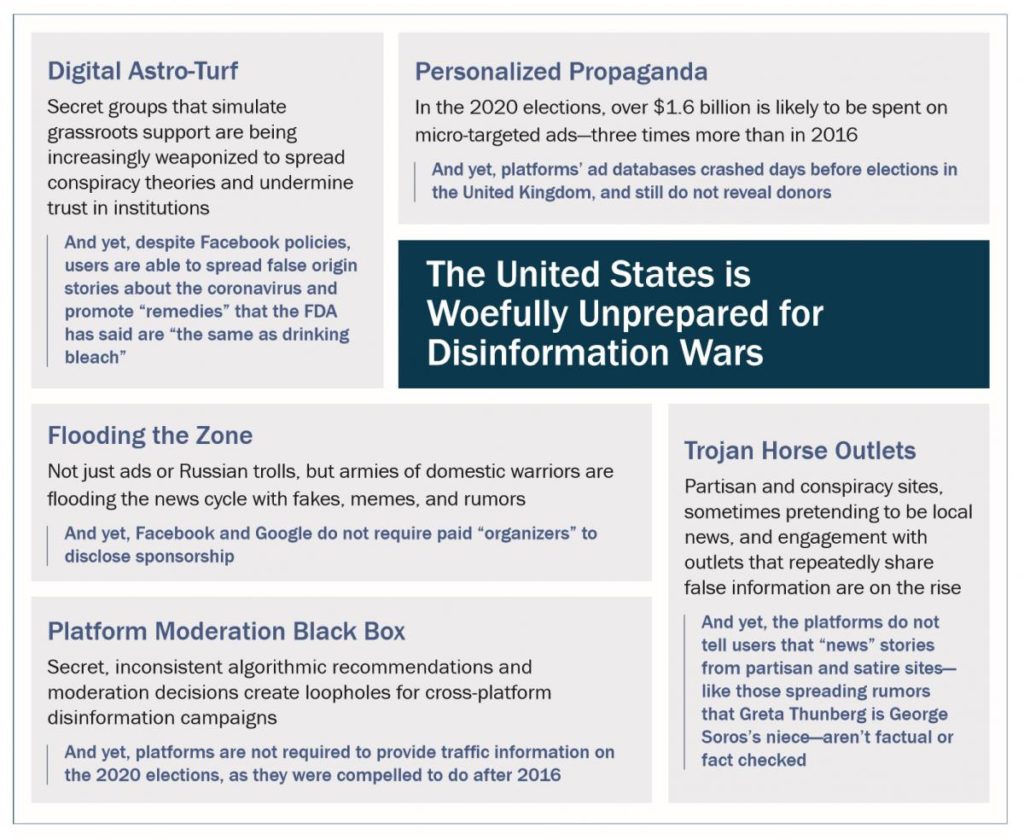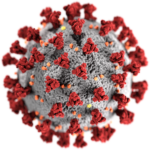
China is taking a page from Russia’s disinformation playbook, observers suggest. The Chinese Communist Party has spent the past week publicly pushing conspiracy theories intended to cast doubt on the origins of the coronavirus, and thus deflect criticism over China’s early mishandling of the epidemic, Bethany Allen-Ebrahimian writes for AXIOS.
Why it matters: The strategy is a clear departure from Beijing’s previous disinformation tactics and signals its increasingly aggressive approach to managing its image internationally.

CSIS
What’s happening: Verified Chinese government Twitter accounts, Chinese embassies and consulates, and some Chinese media outlets have promoted several different conspiracy theories about the origins of the coronavirus.
- One theory, tweeted multiple times by Chinese foreign ministry deputy spokesperson Zhao Lijian and boosted by official Chinese state media, states that the virus may have come from a U.S. military lab.
- Another suggests the disease first appeared in Italy in November, before it appeared in Wuhan.
- Numerous pronouncements from a variety of Chinese government sources have stated more vaguely that the virus may not have come from Wuhan, the city in Hubei where the outbreak began.
A new digital media policy roadmap is needed to defend the integrity of the information space, according to a new analysis from the German Marshall Fund.
 The new digital media policy roadmap would steer clear of vague rules that empower governments to define “good” or “bad” content and would instead focus on updating offline protections, fostering user choice, amplifying the signal of independent news, supporting civic information, and holding platforms accountable for shared, unambiguous, and transparent rules, notes Safeguarding Democracy Against Disinformation, a report from Karen Kornbluh and Ellen P. Goodman, with contributions by Eli Weiner.
The new digital media policy roadmap would steer clear of vague rules that empower governments to define “good” or “bad” content and would instead focus on updating offline protections, fostering user choice, amplifying the signal of independent news, supporting civic information, and holding platforms accountable for shared, unambiguous, and transparent rules, notes Safeguarding Democracy Against Disinformation, a report from Karen Kornbluh and Ellen P. Goodman, with contributions by Eli Weiner.
This policy package—tailored with input from stakeholders and sufficiently agile to account for evolving technology—would close the loopholes that allow bad actors to engage in online information warfare using the largest platforms, and it would do so without restricting free expression or stymieing innovation, they add:
- The new policy roadmap would dampen the noise created by bad actors and disinformation by updating offline laws that safeguard consumers and elections, as well as civil rights protections and privacy for the online information ecosystem.
- It would boost the signal of good information by creating a fund for independent journalism, creating a new public media (or PBS) service for the Internet.
- And it would create accountability by strengthening the old self-regulatory approach to Internet regulation with an industry-civil society code of conduct—focused on practices, not content—backed up by monitoring enabled by data sharing, with a regulatory and civil enforcement backstop.

“The coronavirus shows us the danger of a weakened information ecosystem to our public health—just as disinformation in 2016 showed the danger to democracy. After working on Internet policy since its early days, it’s clear that reform is needed to stop the manipulation of users,” said Kornbluh. “Our approach rejects the false choice between leaving it to the platforms to fix or giving the government a greater role in controlling speech. Researchers and stakeholders are invited to join us in building solutions that would empower users instead.”
“Tailored solutions can improve information fidelity by adding healthy friction into the system to slow the spread of harmful lies and create more demand for credible information,” added Goodman, who authored a recent Knight Columbia First Amendment Institute study on the subject.
While the COVID-19 pandemic continues to spread worldwide, fringe groups and violent extremists, including white supremacists, are pointing to ‘theories’ and works of fiction in an effort to motivate individuals to take violent action, the Soufan Center adds:
One theory—accelerationism—long associated with the demise of capitalism through the speeding up of the modes of production with a result that would lead to a collapse of the economic system and the rise of communism, has been coopted and amended by white supremacists. White supremacists have also taken to a number of platforms, to include mainstream social media outlets, in an attempt to explain to their supporters that COVID-19 is a conspiracy being directed by the New World Order, Agenda 21, George Soros, the Chinese government, and others seeking to eliminate the white race.
The toxic combination of accelerationist theories, disinformation campaigns, and conspiratorial thinking during a time of national emergency represents a significant security concern.







